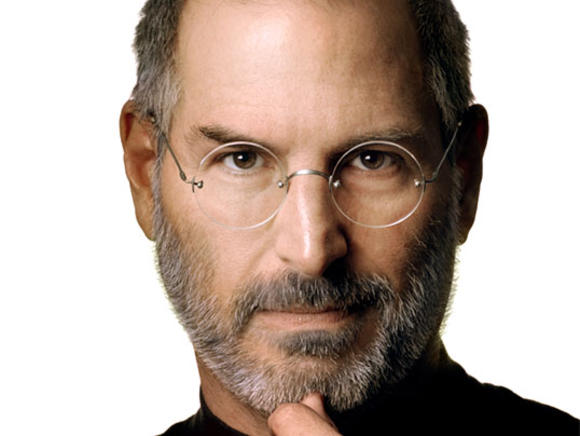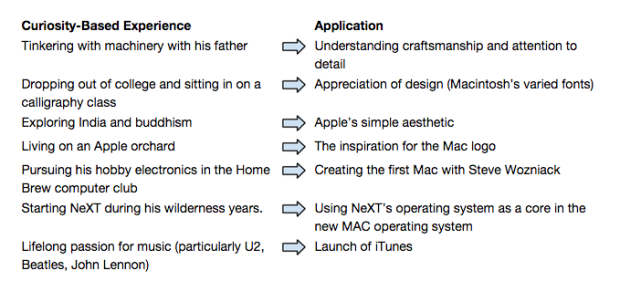 There are two concepts we can somewhat conclusively believe to begin this argument:
There are two concepts we can somewhat conclusively believe to begin this argument:
- There are some people who believe San Francisco will someday become what Detroit has become (and is now recovering from).
- A whopping 89 percent of the initial Fortune 500 doesn’t exist anymore.
To quote Varsity Blues: “Things change, Mox.”
And for the tech industry, the one thing that could kill it was actually predicted in 1995 by its greatest icon, Mr. Steve Jobs.
Steve Jobs had this view of why experiences matter
See if you can follow the bouncing ball:
- I read this article on Forbes recently about “The No. 1 predictor of career success.”
- That article doesn’t teach you that much about career success, admittedly, but it does contain a quote from Steve Jobs in a 1995 Wired article.
- That quote? Here we go: “Creativity is just connecting things. When you ask creative people how they did something, they feel a little guilty because they didn’t really do it. They just saw something. It seemed obvious to them after a while; that’s because they were able to connect experiences they’ve had and synthesize new things. And the reason they were able to do that was that they’ve had more experiences or they have thought more about their experiences than other people. Unfortunately, that’s too rare a commodity. A lot of people in our industry haven’t had very diverse experiences.”
- To wit, look at some of the experiences in Jobs’ own life — and what they potentially led to:
- Now think about today’s tech world: it’s quite insular. Look at LinkedIn job stats, or read this article. (Or this one.)
- Think about Mark Zuckerberg, one of the “tech titans” to come in the wave after Jobs. He basically created Facebook at age 22 or so. Even if he pulls a Bill Gates and walks away sometime in his 50s to pursue other things, still essentially all he’s known is the Silicon Valley tech world, that culture, those types of jobs, those types of experiences.
- There are more and more people probably thinking that way — despite the cost of living in San Francisco, there’s a population boom. Those people are (likely) predominantly entering the tech industry, and doing so at a young age too.
- There’s no “living on an apple orchard” or “taking a calligraphy class” for these people.
- Without an experiential base, topics like “curiosity” and “synthesis” become harder to pursue.
- Without diverse experience, or curiosity, or synthesis — essentially, in a world made insular — the creativity and the functionality of the product will decline. As it declines, other nations and other industries can rush in to fill the tech industry void.
- A doomsday scenario? Of course. Would this take years to play out? Naturally. But Steve Jobs, way back in 1995, may have pinpointed the exact thing that will bring down the industry where he made his fortune.
 That creates a whole different doomsday scenario, to boot.
That creates a whole different doomsday scenario, to boot.
Maybe experiences really DO matter
Here’s the bottom line for recruiters: We sometimes get caught up in concepts like “the resume gap” or other assorted time functions. Maybe we shouldn’t.
Maybe we should think about this instead: The man who shepherded some of the most world-altering products of all-time got to that perch because of his experiences, not because he was consistently toiling in an office from the age 18 to 28, and that somehow made him “a better potential employee.”
See the disconnect?
Authors
Ted Bauer
Originally from New York City, Ted Bauer currently lives in Fort Worth, Texas. He's a writer and editor for RecruitingDaily who focuses on leadership, management, HR, recruiting, marketing, and the future of work. His popular blog, The Context of Things, has a simple premise -- how to improve work. Ted has a Bachelors in Psychology from Georgetown and a Masters in Organizational Development from the University of Minnesota. In addition to various blogging and ghost-writing gigs, he's also worked for brands such as McKesson, PBS, ESPN, and more. You can follow Ted on Twitter @tedbauer2003, connect with him on LinkedIn, or reach him on email at [email protected]
Recruit Smarter
Weekly news and industry insights delivered straight to your inbox.






